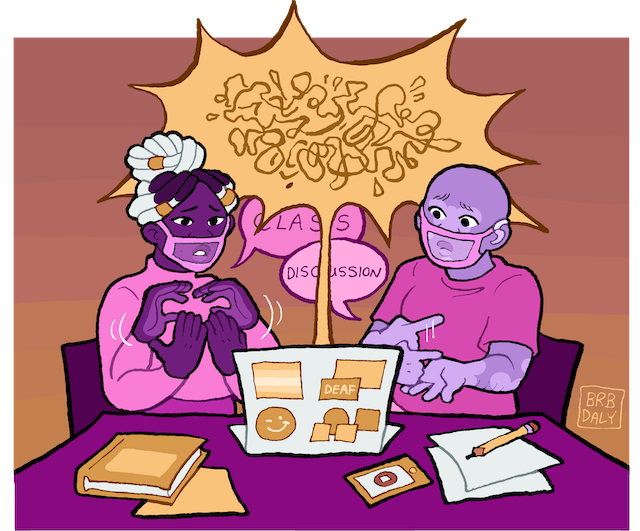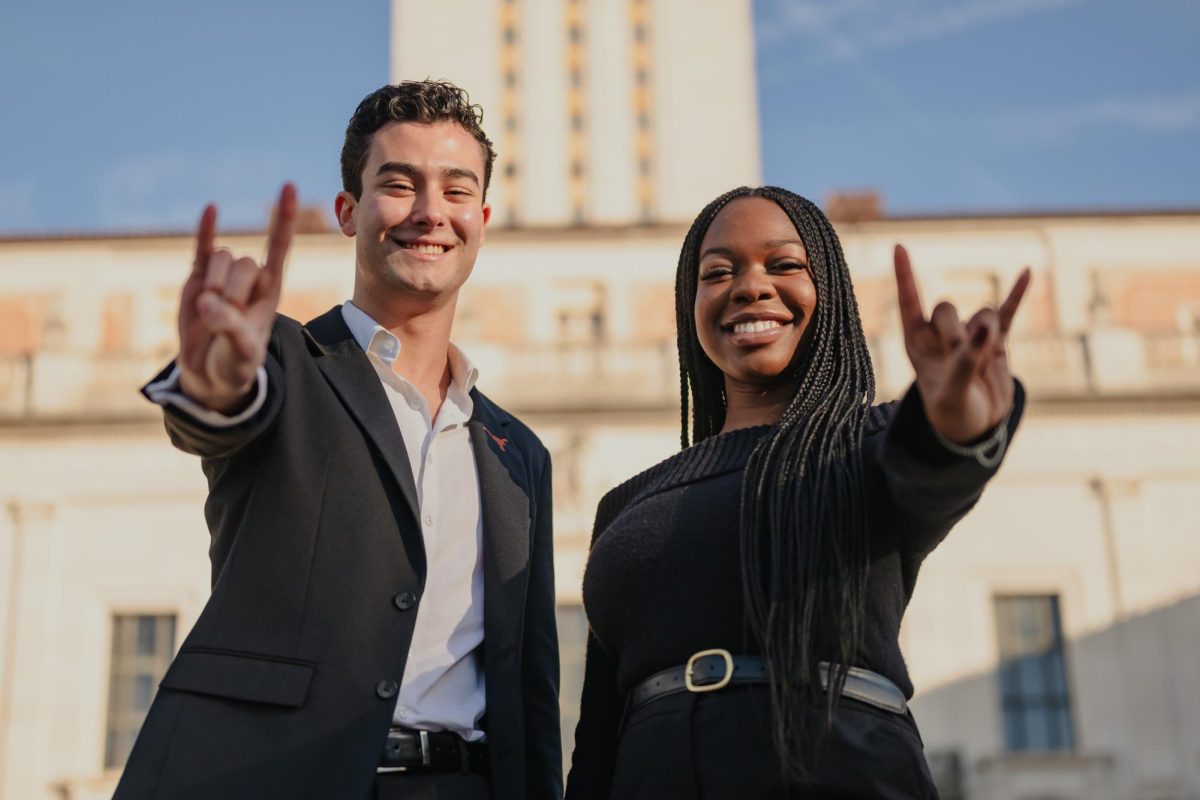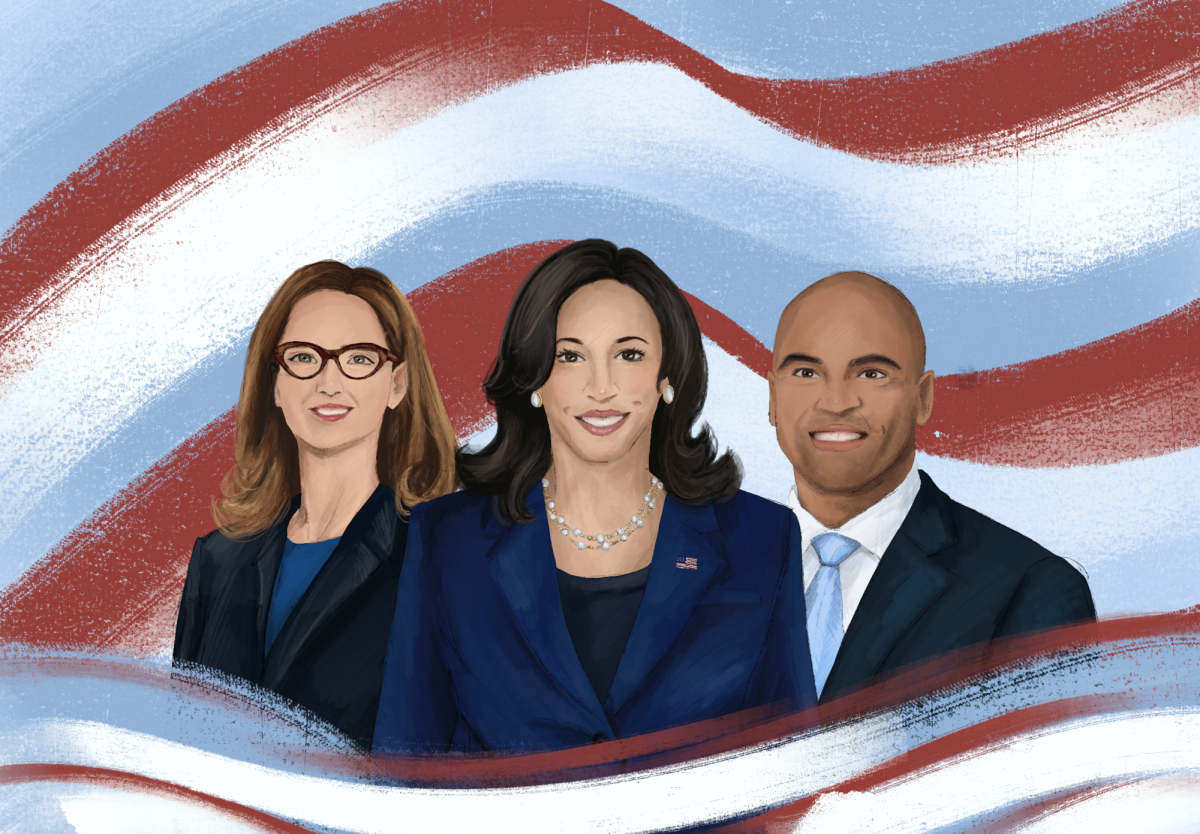In semesters before the pandemic, accommodations for students with disabilities may have included access to copies of class notes and professors’ PowerPoint presentations, seating accommodations, or permission to “move about” in class.
For these students, the transition to an unprecedented online learning environment poses an additional set of challenges. From garbled video to professors and other students in masks, students with disabilities are encountering new issues this semester.
We know we’re the editorial board, but the following is not an opinion: Instructors should not view accommodations for students with disabilities as an extra task or burden but simply as an aspect of their responsibilities as educators.
“This term (accommodations) is often associated with providing extra resources or leniency to students,” Ria Otwani, management information systems junior and director of Student Government’s Diversity and Inclusion Agency, said in an email. “However, the resources students are often asking for should honestly be considered a basic requirement that should (already be) implemented in a higher education learning environment.”
Professors must ensure they’re doing the most they can to actively accommodate students with disabilities as they transition to this new online environment.
Jennifer Maedgen, the senior associate vice president in UT’s Division of Diversity and Community Engagement, oversees the Office for Inclusion and Equity and Services for Students with Disabilities.
More students are registering for deaf and hard of hearing services since UT moved online, Maedgen said. Many of the students registering are students who wouldn’t have necessarily needed the services before the pandemic.
But what about the students who don’t register for these services?
It’s not hard to see why a student may want to avoid registering with Services for Students with Disabilities — in fact, the Texan has written a story about it. While the story focused on professors with disabilities specifically, the problems addressed apply to students as well — a desire to avoid “showing weakness” or a fear of potential discrimination in response to disability disclosure.
A lot of disabilities, especially those that aren’t physical disabilities, are not obvious. Maedgen encourages professors to take into account that some students, even if their disability isn’t visible, are going to have additional needs at this time.
Additionally, adding accommodations like closed captioning and lecture transcripts helps all students, not just those with disabilities.
“As someone with accommodations, they do help me, but I do think they facilitate the academic achievement of the entire class as a whole,” said James Markert, a speech, language, and hearing sciences and special education senior.
We recognize that professors are working to adjust to this new environment just as much as students are. We just ask that as they do, they ensure they keep students’ needs in mind.
Michelle Pho, a practicing audiologist and lecturer in the Department of Speech, Language, and Hearing Sciences, agreed it’s absolutely imperative to make accommodations for students with disabilities, especially in a digital space.
Pho pointed out that Zoom provides excellent opportunities to accommodate students, such as captioning, recording and transcription — as long as professors are willing to take advantage of them.
“One thing that I use, especially for individuals who stutter or have difficulty with (speech): The chatbox is a great tool to use for them to go at their own pace and post questions and feedback,” said Sangeeta Kamdar, a speech, language, and hearing sciences clinical assistant professor.
A member of the editorial board said one of her professors was captioning videos at the beginning of the semester but then just stopped. Oversights like this are unacceptable and create problems for students who rely on captioning to do their work. We urge professors to think twice and ensure they’re proactively supporting all students as best they can this semester.
“I have not been implementing closed captions … but now that you mention it, I’m definitely going to do it moving forward,” Pho said.
We already know next spring will look a lot like this fall. We hope we won’t have to write this editorial again.





















